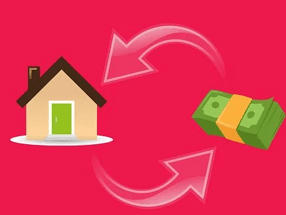Seven Factors You Must Consider Before Buying a Home in Florida

Florida has long been one of the most desirable places to live in the U.S. With its sunny weather, beautiful beaches, and no state income tax, it attracts everyone from young professionals to retirees. Whether you’re looking for a permanent home, a vacation getaway, or an investment property, Florida offers diverse options.
However, buying a home is a major commitment. The process goes beyond choosing a house with a great view or proximity to the beach. Whether this is your first home purchase or a retirement move, you need to evaluate key factors before making a decision.
Here are seven critical things you should consider before buying a home in Florida.
-
Location Matters More Than You Think
Choosing the right location in Florida is just as important as the home itself. The state offers a diverse range of living environments, from bustling metropolitan areas like Miami and Tampa to quiet coastal towns and inland communities. Each area has its own unique benefits and potential drawbacks – what you prefer depends on your lifestyle and priorities.
If you’re moving for work, consider how far you’re willing to commute. Traffic in cities like Orlando and Miami can be challenging, so living close to your job may save you both time and stress. Families should research school districts, as the quality of education varies across different regions.
Safety is another critical factor. While many Florida neighborhoods are known for their welcoming communities, crime rates may differ between areas. Checking crime reports and speaking with locals can provide a realistic understanding of a neighborhood’s safety.
-
Mortgage Rates and Financing in Florida
Understanding the mortgage rates in Florida is necessary before deciding to buy a home here. Interest rates fluctuate based on economic conditions, and even a slight increase can greatly impact your monthly mortgage payment. It’s essential to shop around and compare rates from different lenders to ensure you’re getting the best deal possible.
Florida offers several mortgage options, including conventional loans, FHA loans for first-time buyers, and VA loans for veterans. Each type of loan comes with its own set of eligibility requirements and benefits.
Beyond the mortgage itself, buyers need to consider property taxes and homeowner association (HOA) fees. Some areas have lower tax rates, but others, particularly in high-demand locations, can be costly. Similarly, HOA fees can add hundreds of dollars to your monthly expenses, covering community maintenance, security, and amenities.
-
Insurance Costs and Requirements
One of the most overlooked expenses when buying a home in Florida is insurance. Due to the state’s susceptibility to hurricanes, flooding, and tropical storms, homeowners insurance can be much higher than in other parts of the country.
Before purchasing a home, it’s essential to obtain insurance quotes to understand how much you’ll be paying annually. Some areas, particularly coastal regions, have higher risk factors that drive up insurance premiums. Checking whether the home has hurricane-resistant features, such as impact windows and reinforced roofs, can help lower costs and provide added protection against severe weather.
Florida’s insurance market is constantly evolving, with some providers pulling out of high-risk areas, leading to fewer options for coverage. Working with a knowledgeable insurance agent can help you navigate your options and ensure you meet all state requirements for home coverage.
-
Florida’s Climate and Weather Risks
While Florida’s year-round warm climate is one of its biggest perks, the state also experiences extreme weather conditions. Hurricanes, heavy rains, and even tornadoes are all possibilities, particularly in certain regions. Before buying a home, it’s crucial to check whether the property is in a high-risk area for flooding or storm damage.
Heat and humidity are also factors to consider. Florida summers can be intense, with temperatures frequently exceeding 90°F. Homes with good insulation, energy-efficient windows, and proper ventilation can help manage cooling costs, so make sure you consider these features during your house hunt.
-
Property Type: New Construction vs. Resale
When buying a home, one of the first decisions you’ll face is whether to purchase a brand new home or a resale property. What you choose largely depends on your budget, timeline, and personal preferences.
Newly constructed homes offer the advantage of modern designs updated energy-efficient features and often come with builder warranties that cover structural and appliance issues for several years. Many new communities also include amenities like pools, fitness centers, and clubhouses. However, buying new often means dealing with construction delays, and you may have to wait months before moving in.
On the other hand, resale homes often come with established neighborhoods, mature landscaping, and possibly larger lot sizes compared to new developments. While they may require updates or renovations, resale homes sometimes offer more character and architectural variety. Buyers should conduct thorough inspections on older properties, as issues such as outdated plumbing, electrical wiring, or roof conditions can lead to costly repairs.
-
Investment Potential and Resale Value
Florida’s real estate market has long been attractive to investors due to high demand, a strong rental market, and steady property appreciation. However, location plays a major role in determining a home’s investment potential.
If you’re buying a home as an investment, consider areas with strong job markets, tourism appeal, and population growth. Cities like Orlando, Miami, and Tampa tend to have a high demand for rental properties, whether short-term vacation rentals or long-term leases. However, some local governments have strict regulations on short-term rentals, so research zoning laws before purchasing.
Even if you’re not buying as an investor, it’s wise to think about resale value. Homes in desirable neighborhoods with good schools, low crime rates, and proximity to beaches or entertainment hubs tend to appreciate faster. Looking at historical property trends in an area can give you a better idea of what to expect in terms of long-term value.
-
Local Amenities and Quality of Life
Your home’s surroundings will impact your daily life just as much as the property itself. Florida is known for its diverse communities, ranging from vibrant urban centers to quiet beach towns, and each offers a different lifestyle.
If you have children, researching local school districts is a must. Access to quality healthcare is another important consideration, especially for retirees.
Recreational opportunities and entertainment should also be factored in. Florida is home to world-class beaches, golf courses, theme parks, and cultural attractions. If you enjoy dining out, shopping, or nightlife, cities like Miami and Tampa offer endless options. Understanding what a neighborhood has to offer beyond just the home itself will ensure you choose a location that aligns with your lifestyle.
Purchasing a home in Florida requires careful consideration of multiple factors beyond just finding a property with a good view or spacious layout. The process can be overwhelming, but the right approach makes all the difference. Take the time to research, ask the tough questions, and consult professionals who can guide you through the details. A home is not just a structure; it’s an investment in your future, your daily comfort, and your peace of mind.



